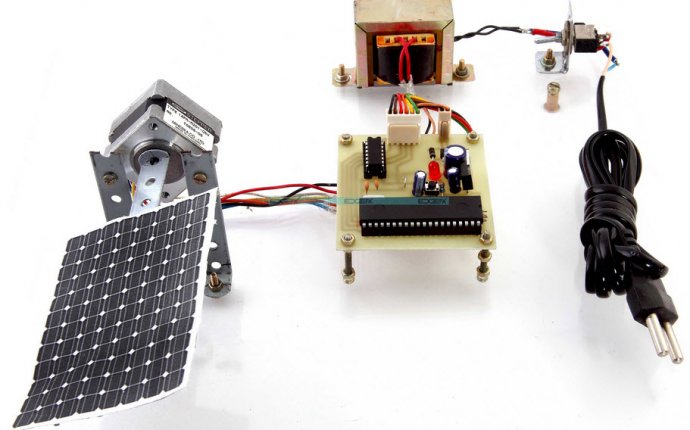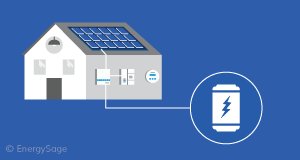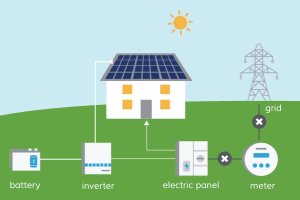
Working of solar energy system
 The popularity of solar power has led to the rise of another renewable technology: solar batteries that can store extra solar power for later use. Companies like Tesla are developing batteries that can be installed with solar panels to create “solar-plus-storage” systems for your home. Read on to learn more about residential solar batteries, and find out if you should consider installing a solar-plus-storage system for your home.
The popularity of solar power has led to the rise of another renewable technology: solar batteries that can store extra solar power for later use. Companies like Tesla are developing batteries that can be installed with solar panels to create “solar-plus-storage” systems for your home. Read on to learn more about residential solar batteries, and find out if you should consider installing a solar-plus-storage system for your home.
Solar plus storage: Solar batteries for home explained
To appreciate why you might choose to install a solar-plus-storage system for your home, you first need to understand how a standard home solar PV system functions.
The typical solar energy system includes solar panels, an inverter, equipment to mount the panels on your roof, and a performance monitoring system that tracks electricity production. The solar panels collect energy from the sun and turn it into electricity, which is passed through the inverter and converted into a form that you can use to power your home.
The vast majority of residential solar energy systems are connected to the electricity grid (or “grid-tied”). When your panels are producing more electricity than your home needs, the excess is fed back into the power grid. Conversely, when your home needs more electricity than your solar panels are producing, you can draw power from the electric grid.
In most cases, you receive a credit on your utility bill for the electricity you send back to the grid. Later, when you are using more electricity than your solar panels have generated, you can use those credits instead of having to pay more to your utility. This process is known as net metering.
How do solar panels charge batteries?
Solar batteries work by converting the AC energy being produced by your solar panels and storing it as DC power for later use. In some cases, solar batteries have their own inverter and offer integrated energy conversion. The higher your battery's capacity, the larger the solar system it can charge.
 When you install a solar battery as part of your solar panel system, you are able to store excess solar electricity at your home instead of sending it back to the grid. If your solar panels are producing more electricity than you need, the excess energy goes towards charging the battery. Later, when your solar panels aren’t producing electricity, you can draw down the energy you stored earlier in your battery for night use. You’ll only send electricity back to the grid when your battery is fully charged, and you’ll only draw electricity from the grid when your battery is depleted.
When you install a solar battery as part of your solar panel system, you are able to store excess solar electricity at your home instead of sending it back to the grid. If your solar panels are producing more electricity than you need, the excess energy goes towards charging the battery. Later, when your solar panels aren’t producing electricity, you can draw down the energy you stored earlier in your battery for night use. You’ll only send electricity back to the grid when your battery is fully charged, and you’ll only draw electricity from the grid when your battery is depleted.
What this means in practical terms is that homes with solar-plus-storage can store excess solar power onsite for use later when the sun isn’t shining. As a bonus, since solar batteries store energy at your home, they also offer short-term backup power in the event that there’s a power outage in your area.
Home energy storage can be useful even without solar
While batteries are typically paired with home solar energy systems, they can also be useful to homeowners without solar panels. Small-scale energy storage, the technology used in solar-plus-storage systems, can also be charged with electricity from the grid to provide backup power without the use of a diesel-powered backup generator.
Should you install a solar battery at your home?
Whether you can save money by installing a solar battery depends on the way that your utility compensates you for your solar power. Most utilities offer full net metering, which means that you receive a credit on your electric bill for every kilowatt-hour of electricity your solar panels produce (even if you don’t use them immediately). This means that you won’t see additional savings on your monthly electricity bill if you install a solar battery.
However, there are many situations where a solar battery can improve the economics of solar panels for your home or business. If your utility has time-of-use rates or demand charges, or does not offer net metering, solar batteries can help you save more when you go solar.
Solar grid storage: How solar batteries fit into the broader electricity ecosystem
Solar batteries and other energy storage technologies may not be commonplace yet, but that won’t be the case for long. GTM Research and the Energy Storage Association expect that it will become a $2.5 billion market in the United States by 2020.
Why is energy storage expected to grow at such a rapid rate? The same benefit that solar batteries offer to homeowners – namely, the ability to store renewable electricity for later use – can also be applied at a larger scale for the entire electricity grid. Energy storage technologies like solar batteries provide electric utilities and energy users more flexibility in the way that they generate and use electricity, particularly electricity sourced from solar and wind.









